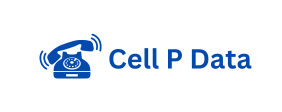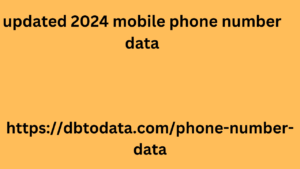Automated messaging or text automation empowers businesses and marketing professionals to connect with their customers in a highly constructive and personalized manner. This form of messaging has been gaining popularity since its inception. It not only saves businesses the manual effort of sending messages to each customer individually but also enhances the customer experience.
Connecting with targeted audiences becomes highly convenient with automated messaging for businesses. This automation ensures no manual effort is wasted, creating a win-win situation for both customers and businesses.
In this blog post, we will discuss automated SMS
messaging in a detailed manner and explore the benefits of this marketing technique. Also, make you aware of its constructive use, and explain how it helps businesses streamline messaging operations.
If you are a business owner and own a call center this writeup can be highly beneficial for you. We welcome you to read the entire blog and get the most out of this topic.
A DB to Data is a smart marketing tool for finding new agencies or new updated 2024 mobile phone number data clients. By buying data from DB to Data, you will get new contract mobile numbers that will help you increase your marketing rate for your organization or industry. This will increase your marketing promotion rate on DB to Data websites. We give 100% guarantee to our customers
What Is An Automated Message
Automated messaging is the process of sending SMS to a targeted audience using specialized software. This technique ensures a higher open and delivery rate of messages. To set up an automated SMS messaging workflow, you need to use a specific portal, software, or tools that allow you to schedule the timing and set your niche audience for your messaging campaigns.
Also, today’s advanced call centers operate on cloud infrastructure and utilize smart CPaaS solutions to streamline business operations, including messaging automation. This automation extends beyond text messages to include emails, WhatsApp broadcasts, and voice messages. Achieving successful messaging automation contributes to improved efficiency and productivity, resulting in higher customer satisfaction.
Why Do Businesses Use Automated Text Messaging?
Brands commonly use automated messaging to improve customer experience. This includes automated appointment reminders, shipping confirmation feedback, request order confirmation, etc. Text automation or SMS automation may sound similar to SMS marketing, but it has a greater area to serve comparatively. It ensures customer queries are resolved irrespective of time and geographical location. It also helps businesses facilitate a smooth follow-up trail for appointment scheduling, payments, and business communication.
For example, a business can send automated messages using a reliable automated text messaging service about new sales notifications, big season discounts, special offers, and price drops through bulk messaging set to deliver at a specific time and target audience.
Improved Customer Experience
Quick and timely responses to customer inquiries and concerns can enhance the overall customer experience. Automated messages can provide instant confirmations, updates, and answers to common questions.
Real-Life Use Cases Of Automated Messaging
Automated messaging is widely used across various industries to improve communication, enhance customer experience, and streamline operations. Here are some real-life use cases, along with examples:
1. Customer Support
Use Case: Automated responses to frequently asked questions.
Example: A customer contacts an e-commerce company with a question about order status. The automated messaging system immediately responds with the order’s current status, expected delivery date, and a link for tracking.
2. Appointment Reminders
Use Case: Sending reminders for appointments or bookings.
Example: A dental clinic uses automated messaging to send appointment reminders to patients 24 hours before their scheduled visit. Patients receive a message with the appointment details and an option to confirm or reschedule.
3. Marketing Campaigns
Use Case: Running promotional campaigns and sending personalized offers.
Example: A retail store launches a new product and uses automated messaging to send personalized discount codes to customers based on their purchase history. Customers receive tailored offers that encourage them to visit the store or shop online.
4. Order Confirmations And Updates
Use Case: Sending order confirmations and shipment updates.
Example: After a customer places an order on an online store, they receive singapore email library an automated message confirming the order details. As the order is processed and shipped, the customer receives updates about the status and tracking information.
5. Surveys And Feedback Collection
Use Case: Collecting customer feedback after a purchase or service.
Example: By leveraging an automated text messaging service, a restaurant sends an automated message to diners after their meal, asking them to rate their experience and provide feedback. The feedback helps the restaurant improve its service and address any issues promptly.
6. Event Reminders And Updates
Use Case: Sending updates and reminders for events.
Example: A conference organizer uses automated messaging to remind attendees about upcoming sessions, changes in the schedule, and important announcements. Attendees stay informed and engaged throughout the event.
7. Payment Reminders
Use Case: Reminding customers about upcoming or overdue payments.
Example: A utility company sends automated messages to bw list customers reminding them of their bill due dates. Customers receive a message with the amount due and a link to make a payment online, reducing the chances of late payments.
Conclusion
Automated messaging empowers businesses to facilitate smooth communication with customers, ensuring maximum engagement and response. SMS marketing has become an integral part of business communication, helping streamline the process. Today’s advanced technologies, such as chatbots, automated emails, and scheduled messaging features, not only ensure that customers receive timely and personalized responses but also free up valuable resources for more strategic tasks.
FAQs


